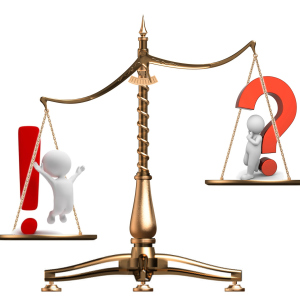The thinking process represents a complex individual chain of conclusions, at the end of which a new thought or judgment is born. What is the basis of this mental process and what techniques are used?
What is a deduction?
The term "deduction" originates from the Latin "Deduction", which means elimination. In a modern interpretation, deduction is a way of thinking, during which conclusions are built on the private on the basis of common.
In other words, the concept of "deduction" implies the construction of a logical chain from general information about the studied phenomenon or event to concrete conclusions of the question under study. The deduction method (or deductive method) was widely used in the field of natural sciences, as well as mathematics. The ability to build logical chains is especially in demand in forensic.

How to develop deductive thinking?
The ability to deductive thinking is not only possible, but also need to develop. How to do it?
- The first step is the development of thinking flexibility. From how much your brain is developed, the set of solutions that it is capable of creating is depeted. In the search for exit from any situation, strive to evaluate and analyze as many facts known to you on the question under consideration, build chains on the principle of the reason - the action is a consequence. A good helper in the development of thinking will be the tasks of mathematics, physics and chemistry.
- Look for communication not only in events, but also prerequisites for them. Opening the true factors, the perpetrators, you can correctly analyze those who have committed or some of the actions.
- Do not stop the achieved, try to constantly replenish your knowledge. So you can build logical chains not on guesses and superficial knowledge, but on reliable facts. The ability to analyze is in parallel with the intellectual development of the personality.
- Expand your horizons. The best way for this is a trip. Acquaintance with someone else's culture, the arrangement in the new region will expand not only informational boundaries, but also the boundaries of perception. The accumulated experience will also play a positive role during a deductive assessment.
- Be careful to detail. Getting information on the subject of interest from the outside, try to study it thoroughly. At the same time, do not forget that in addition to the actually uttered information, faulty, gestures, intonation of the speaker are presented. Be observed.
- Try to sometimes violate the usual course of events - read the new book that is not characteristic of you the genre, going to work or returning home, change the usual route, try a new dish or hobby.

The benefits of deductive thinking
The ability to build logical conclusions and consequences on the basis of the existing information in practice is quite popular and useful skill. So the deduction helps:
- Quickly and at the same time correctly cope with the tasks.
- Find nontrivial (often optimal) solutions.
- Helps build interpersonal relationships. The ability to analyze acts and circumstances gives an understanding of human behavior motives.
- Find a way out of many practical (life) situations.
- Develops not only logic, but also intuition.

The ability to deduction each person is present to varying degrees, but it's never too late to start working on yourself and take up the development of both large brain functions.

















